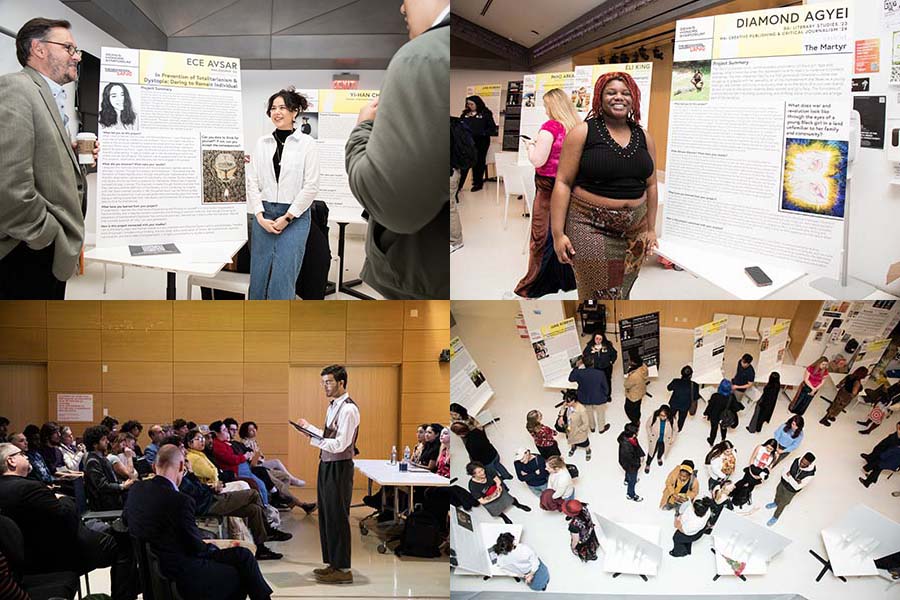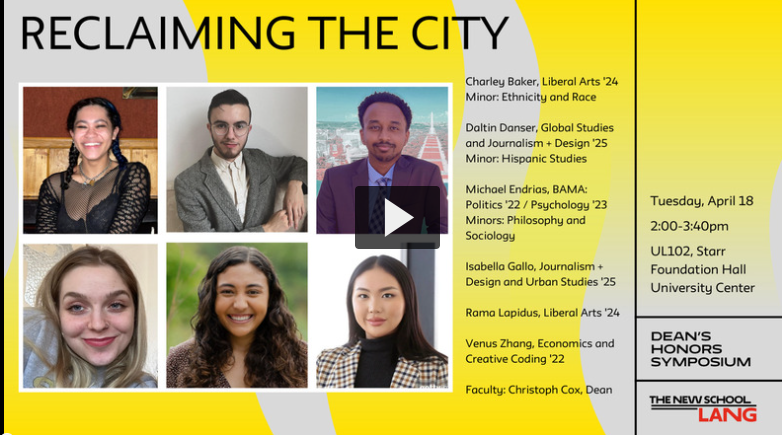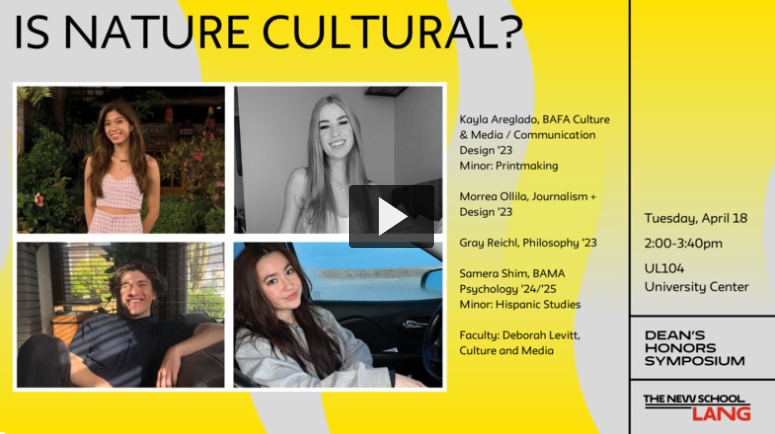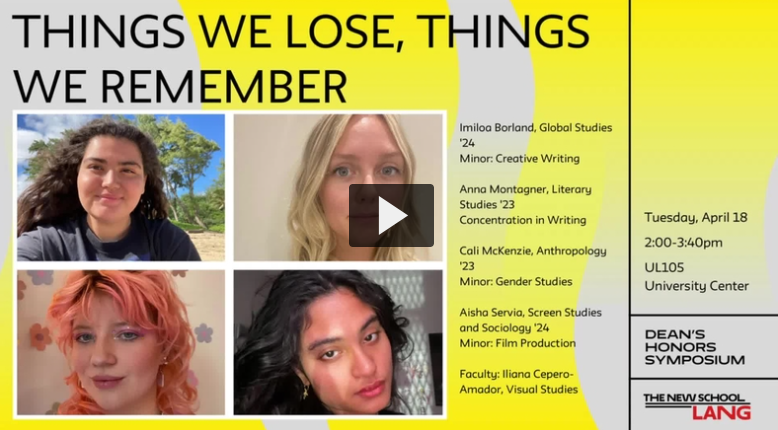
Eugene Lang College’s Dean’s Honor Symposium Spotlights Undergraduate Researchers and Creative Practitioners
A key part of the teaching philosophy at Eugene Lang College of Liberal Arts is the idea that the best way for students to demonstrate subject mastery is to explain it to someone else. Putting this philosophy into practice, the annual Lang Dean’s Honor Symposium gives students from across Lang’s academic programs the opportunity to develop and display subject mastery by learning how to present the results of their projects. In teaching them how to present their scholarly research to an outside audience, the symposium offers them a chance to begin the transition from students to scholars, professionals, and researchers.
Twenty-eight students from all sectors of Lang presented their original research and projects during panel presentations and a poster session. “I was moved and inspired by this extraordinary group of passionate students who are excellent scholars and deeply committed citizens,” said Lang Dean Christoph Cox. “The presentations and posters for the Dean’s Honor Symposium are always memorable, but this year’s presentations were even more so, given the work to make projects accessible to a wide audience.”
The poster session and panels provided a space for students to contemplate years of research and learn how to speak with people about their projects. June Robbins, Politics ’23, who presented “It’s a Beautiful Day in the Gayborhood: The Dualism of Queer Gentrification” during the poster session, expressed appreciation for the opportunity to synthesize years of extensive research into a more easily comprehensive presentation.
“This project is based on a paper I wrote with the same name for the class Theorizing the Land. That was a long, 30-page paper, and the symposium helped me refine how to talk about that extensive research and turn it into something that is easier to present to people,” says Robbins. “I spent a lot of time on that project, and I wanted to be able to talk with people about it without having to sit down for 45 minutes.”
About her project, “Racism by Design,” Morgan Boals, Urban Studies and Communication Design ’23, says, “In learning to design user experiences through digital interfaces, I was curious about how racism is integrated into technology. I wanted to center voices from our community and racially marginalized communities who contend with racism in ways I do not as a white person. In working on this poster, I developed my ability to articulate my research through writing and presenting and by working with campus tutors to make edits and revisions. This gave me confidence in presenting and speaking to the audience about my project.”
The poster “What I Think When I Hear the Term ‘Gay Sounding Voice,’” created by Brennan Connell, Contemporary Music ’25, evolved from an idea he first started investigating in the first-year writing course What’s the Problem with the Body. “Since writing this, my thinking has evolved a lot, and the symposium has given me an opportunity to really share my thinking over a progression of time,” says Connell. “Voices are something we take for granted, and within the university, —we need to create a more human atmosphere where we don’t immediately make assumptions about the way people sound, profiling them based on certain characteristics. The opportunity to share this with the community is really important.”
The symposium is a unique opportunity for students to develop skills that will serve them both in and outside of the classroom. “If you want to talk about your research, do it. I spent three years of my undergraduate program on HIV/AIDS research. I’m glad to have something tangible that’s a representation of all the work I did during my first three years of college,” says Robbins.
Whether students move on to pursue careers in theater, technology, or academia, the skills they acquire in the process of organizing accessible presentations of complex information will serve them throughout their lives. “This program was a wonderful way to engage with the community and establish connections through my work. It was a wonderful way to conclude my time at The New School and share what I have learned,” says Boals.
Preceding the poster session were three panels featuring the work of 14 students. The student panel presentations are interdisciplinary thematic arrangements that demonstrate the deep interconnectivity of the intellectual work at Lang.
“Reclaiming the City” explored the evolving ways in which specific communities are marginalized and criminalized by political and social institutions in New York City.

“Is Nature Cultural?” challenges traditional boundaries between the naturally determined and the socially constructed as they operate in the disciplines of medicine, philosophy, media theory, and environmental studies.

“Things We Lose, Things We Remember” brings together four stories of collective memory, legal identity, cultural translation, and historical erasure, challenging dominant narratives and established understandings and creating a space for reconstructing and reimagining home.
